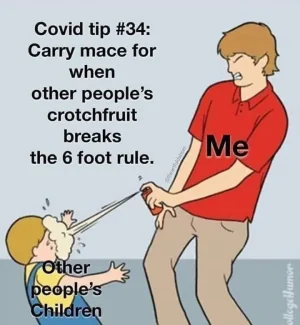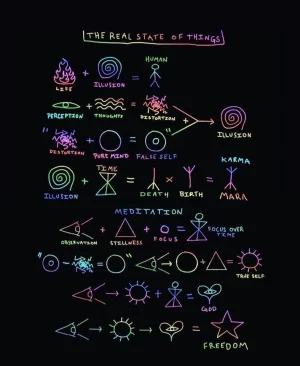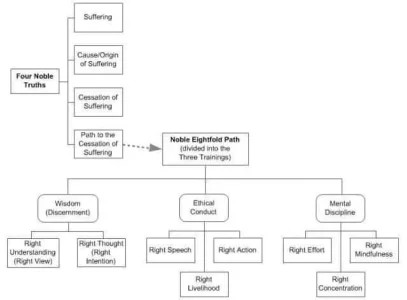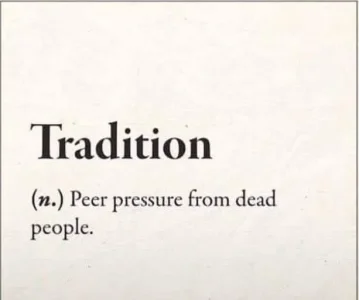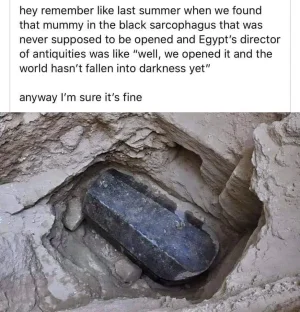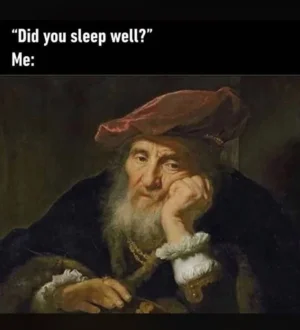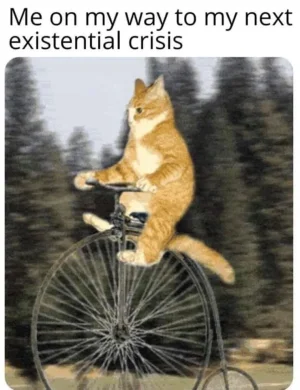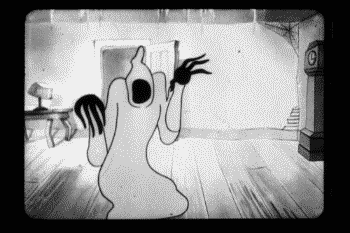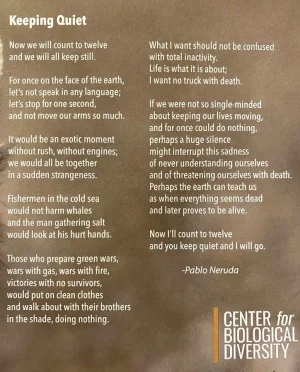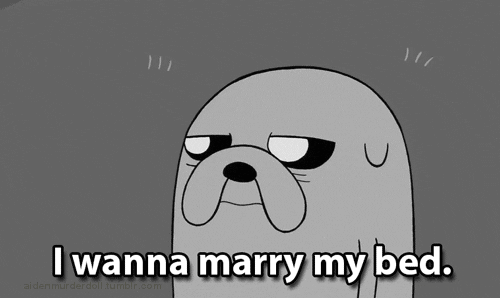You are using an out of date browser. It may not display this or other websites correctly.
You should upgrade or use an alternative browser.
You should upgrade or use an alternative browser.
Merkabah
- Thread starter Skarekrow
- Start date
More options
Who Replied?Skarekrow
~~DEVIL~~
- MBTI
- Ni-INFJ-A
- Enneagram
- Warlock
Starry Night is my favorite painting of all time. . I have a big tapestry of it on my wall. . it is magical
It is transcendent I agree!
I haven't seen that one IRL, but I have seen his other at that Musee D'Orsay in Paris twice!
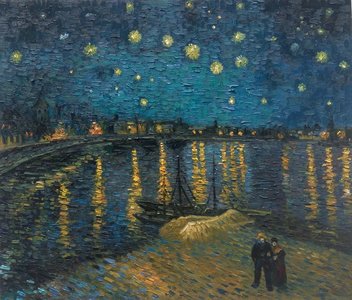
- MBTI
- infj
- Enneagram
- type 4w5
they are mesmerizingIt is transcendent I agree!
I haven't seen that one IRL, but I have seen his other at that Musee D'Orsay in Paris twice!

Skarekrow
~~DEVIL~~
- MBTI
- Ni-INFJ-A
- Enneagram
- Warlock
My favorite at that museum though was "The Buddha" by Odilon Rendon!they are mesmerizing
I had a print of it for quite a while...I should get another...
:<3white::<3white:
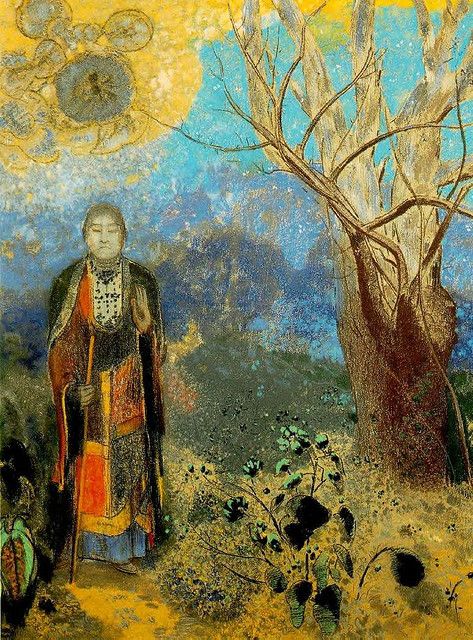
.
- MBTI
- infj
- Enneagram
- type 4w5
My favorite at that museum though was "The Buddha" by Odilon Rendon!
I had a print of it for quite a while...I should get another...
:<3white::<3white:

that is lovely
.
Skarekrow
~~DEVIL~~
- MBTI
- Ni-INFJ-A
- Enneagram
- Warlock
Feeling lucky?
Thoughts??
Enjoy!
:<3white:
What happens to us naturally contrasts with what we do.
But, in his paper ‘Moral Luck’ (1981), the British philosopher Bernard Williams conjures the example of a lorry driver who hits and kills a child.
The driver didn’t kill the child due to being drunk or driving carelessly.
He was just unlucky.
In such a case, as Williams later put it in his book Shame and Necessity (1993): ‘The terrible thing that happened to him, through no fault of his own, was that he did those things.’
He hit and killed the child.
Luck can do more than just happen to us; it can affect what we do.
Or, to put it another way: what we do is not fully in our control.
Williams gave a name to an emotion that can accompany doing bad things through bad luck: agent-regret.
This is different from remorse, which Williams linked to doing bad things voluntarily.
The driver’s tragedy isn’t that he was speeding or driving carelessly – voluntary things that might arouse remorse; his tragedy is simply that he killed someone.
Agent-regret latches on to this.
What the driver regrets is that he did it – he killed the child.
The problem with luck isn’t just that it can affect what we do in minor or unimportant ways (though it does this, too); the problem is that it can also affect our actions in life-altering ways.
We can imagine the driver feeling a deep and miserable regret that ruins the rest of his life.
And it seems that he is rational: he feels terrible because what he did, through no fault of his own, was awful.
It is thus deeply unsettling to realize how much luck can affect what we do.
But should we be unsettled?
An alternative position could hold that what we do – or what matters in what we do – just is what we control, and the rest is simply stuff that happens in the world.
We could regret these things as bad events in the world, but we couldn’t feel agent-regret about the factors beyond our control because they are not part of our agency at all.
The trouble with this position is that so much of what we do seems to depend upon things that we do not control.
To raise your arm, you need your body to cooperate; to throw a stone a few metres, you need to avoid a gust of wind.
Such an approach inevitably restricts our agency to a sparse domain.
Perhaps all that matters when it comes to agency is what we will.
This is the view that Williams associated with the 18th-century philosopher Immanuel Kant, a view that gives what Williams called ‘solace to a sense of the world’s unfairness’.
If agency is restricted to what we sincerely try to do, then the vicissitudes of luck lose their edge.
For the unlucky driver who runs down a child, the fact that his conduct was unimpeachable can be a relief and it can set him apart from those who were malicious or reckless.
No doubt sometimes we need to take solace here, and we should recognize that a good tree can bear bad fruits.
But this solace comes at a cost.
Williams thought that, were we to insulate agency from luck altogether, agency would be a ‘superficial’ concept.
This superficiality comes from recognizing that the Kantian picture cuts us off from the world.
Agency, in this picture, loses much of its power to make an impact on the world.
It doesn’t even let us throw stones or raise our arms.
If we think that our impact on the world is an important part of agency, it seems that we must accept that we can act on the world even though the impact we make is partly out of our control.
We must accept that what we dodepends on luck. As Williams put it: ‘One’s history as an agent is a web in which anything that is the product of the will is surrounded and held up and partly formed by things that are not …’
If our agency extends beyond what we try to do, if it extends beyond what we control, what does it mean to be an agent?
A good place to start, when trying to understand this, is from the obvious point that sometimes we try to do something and it happens.
But it doesn’t just happen; rather, we have abilities that let us achieve what we want.
The trouble is that our abilities are imperfect, fallible, human.
Agent-regret arises when these abilities go wrong, when we try to do something and something else – something bad – happens.
The bad things we do are not just restricted to those acts we are guilty of committing, and lamentable agency is not just restricted to our voluntary actions.
This is because these abilities can go wrong through no fault of our own; they can go wrong not through misuse, but merely because they are fallible.
In mundane cases, you walk through the bar and spill someone’s pint. In more serious cases, you go for a drive and kill somebody.
One could read Williams and come away dispirited, left with a pessimistic view of the world.
After all, Williams focuses on regret rather than the happy accidents that can affect our lives.
He uses examples such as the lorry driver and draws on heart-rending stories from literature, such as Anna Karenina’s suicide.
There is little comfort in his focus on how, even if we are cautious in what we aim to do, we can be felled by a stroke of luck.
Williams can be a bleak read.
At least the Kantian picture puts our fate in our hands.
But there is also something deeply empowering in Williams’s move away from the Kantian picture.
Reflection on luck need not urge us to retreat to the secure but restricted domain of what we fully control; it can reaffirm our potency as agents and encourage our ambition.
We can make a mark on the world and sometimes that mark can be a spectacular one.
From a work of art to a strike on the football pitch, from the things we write to the meals we make, these things don’t just happen: we have to seek them out and use our skills to bring them about.
And they are our actions – marks we make on the world as agents.
Without accepting that we might fail, that we might end up regretting what we have done, we wouldn’t be able to achieve any of these things.
There is something richer and more uplifting in recognizing this, rather than living our lives in the secure but impotent realm where trying is all that matters.
Thoughts??
Enjoy!
:<3white:
If all our actions are shaped by luck, are we still agents?

Jake Wojtowicz is a PhD graduate from King’s College London.
He is interested in the philosophy of law, ethics and the history of ethics.

Jake Wojtowicz is a PhD graduate from King’s College London.
He is interested in the philosophy of law, ethics and the history of ethics.
What happens to us naturally contrasts with what we do.
But, in his paper ‘Moral Luck’ (1981), the British philosopher Bernard Williams conjures the example of a lorry driver who hits and kills a child.
The driver didn’t kill the child due to being drunk or driving carelessly.
He was just unlucky.
In such a case, as Williams later put it in his book Shame and Necessity (1993): ‘The terrible thing that happened to him, through no fault of his own, was that he did those things.’
He hit and killed the child.
Luck can do more than just happen to us; it can affect what we do.
Or, to put it another way: what we do is not fully in our control.
Williams gave a name to an emotion that can accompany doing bad things through bad luck: agent-regret.
This is different from remorse, which Williams linked to doing bad things voluntarily.
The driver’s tragedy isn’t that he was speeding or driving carelessly – voluntary things that might arouse remorse; his tragedy is simply that he killed someone.
Agent-regret latches on to this.
What the driver regrets is that he did it – he killed the child.
The problem with luck isn’t just that it can affect what we do in minor or unimportant ways (though it does this, too); the problem is that it can also affect our actions in life-altering ways.
We can imagine the driver feeling a deep and miserable regret that ruins the rest of his life.
And it seems that he is rational: he feels terrible because what he did, through no fault of his own, was awful.
It is thus deeply unsettling to realize how much luck can affect what we do.
But should we be unsettled?
An alternative position could hold that what we do – or what matters in what we do – just is what we control, and the rest is simply stuff that happens in the world.
We could regret these things as bad events in the world, but we couldn’t feel agent-regret about the factors beyond our control because they are not part of our agency at all.
The trouble with this position is that so much of what we do seems to depend upon things that we do not control.
To raise your arm, you need your body to cooperate; to throw a stone a few metres, you need to avoid a gust of wind.
Such an approach inevitably restricts our agency to a sparse domain.
Perhaps all that matters when it comes to agency is what we will.
This is the view that Williams associated with the 18th-century philosopher Immanuel Kant, a view that gives what Williams called ‘solace to a sense of the world’s unfairness’.
If agency is restricted to what we sincerely try to do, then the vicissitudes of luck lose their edge.
For the unlucky driver who runs down a child, the fact that his conduct was unimpeachable can be a relief and it can set him apart from those who were malicious or reckless.
No doubt sometimes we need to take solace here, and we should recognize that a good tree can bear bad fruits.
But this solace comes at a cost.
Williams thought that, were we to insulate agency from luck altogether, agency would be a ‘superficial’ concept.
This superficiality comes from recognizing that the Kantian picture cuts us off from the world.
Agency, in this picture, loses much of its power to make an impact on the world.
It doesn’t even let us throw stones or raise our arms.
If we think that our impact on the world is an important part of agency, it seems that we must accept that we can act on the world even though the impact we make is partly out of our control.
We must accept that what we dodepends on luck. As Williams put it: ‘One’s history as an agent is a web in which anything that is the product of the will is surrounded and held up and partly formed by things that are not …’
If our agency extends beyond what we try to do, if it extends beyond what we control, what does it mean to be an agent?
A good place to start, when trying to understand this, is from the obvious point that sometimes we try to do something and it happens.
But it doesn’t just happen; rather, we have abilities that let us achieve what we want.
The trouble is that our abilities are imperfect, fallible, human.
Agent-regret arises when these abilities go wrong, when we try to do something and something else – something bad – happens.
The bad things we do are not just restricted to those acts we are guilty of committing, and lamentable agency is not just restricted to our voluntary actions.
This is because these abilities can go wrong through no fault of our own; they can go wrong not through misuse, but merely because they are fallible.
In mundane cases, you walk through the bar and spill someone’s pint. In more serious cases, you go for a drive and kill somebody.
One could read Williams and come away dispirited, left with a pessimistic view of the world.
After all, Williams focuses on regret rather than the happy accidents that can affect our lives.
He uses examples such as the lorry driver and draws on heart-rending stories from literature, such as Anna Karenina’s suicide.
There is little comfort in his focus on how, even if we are cautious in what we aim to do, we can be felled by a stroke of luck.
Williams can be a bleak read.
At least the Kantian picture puts our fate in our hands.
But there is also something deeply empowering in Williams’s move away from the Kantian picture.
Reflection on luck need not urge us to retreat to the secure but restricted domain of what we fully control; it can reaffirm our potency as agents and encourage our ambition.
We can make a mark on the world and sometimes that mark can be a spectacular one.
From a work of art to a strike on the football pitch, from the things we write to the meals we make, these things don’t just happen: we have to seek them out and use our skills to bring them about.
And they are our actions – marks we make on the world as agents.
Without accepting that we might fail, that we might end up regretting what we have done, we wouldn’t be able to achieve any of these things.
There is something richer and more uplifting in recognizing this, rather than living our lives in the secure but impotent realm where trying is all that matters.
Skarekrow
~~DEVIL~~
- MBTI
- Ni-INFJ-A
- Enneagram
- Warlock
"An Open Letter to the president
From the Drummer of Mötley Crüe, Tommy Lee
From the Drummer of Mötley Crüe, Tommy Lee
Dear Fucking Lunatic,
At your recent press conference - more a word salad that had a stroke and fell down stairs, you were CLEARLY so out of your depth you needed scuba gear. Within minutes of going off air your minions were backpedaling faster than Cirque De Soliel acrobats... In India a week ago, i couldn’t get past the bit about your being the most popular visitor in the history of fucking india — a country of a BILLION human souls that’s only 3000 years old, give or take.!!! Trust me - Gandhi pulled CROWDS.. You pulled a cricket stadium and half WALKED out...
Do you know how fucking insane you sound, you off-brand butt plug? That's like the geopolitical equivalent of “that stripper really likes me” — only 10,000 times crazier and less self aware.
You are fucking exhausting. Every day is a natural experiment in determining how long 300 million people can resist coring out their own assholes with an ice auger. Every time I hear a snippet of your Queens-tinged banshee larynx farts, I want to scream!
We are fucking tired. As bad as we all thought your presidency would be when Putin got you elected, it’s been inestimably worse.
You called a hostile, nuclear-armed head of state “short and fat.” How the fuck does that help?
You accused a woman — a former friend, no less — of showing up at your resort bleeding from the face and begging to get in. You, you, YOU — the guy who looks like a Christmas haggis inexplicably brought to life by Frosty’s magic hat — yes, you of all people said that.
You attempted — with evident fucking glee — to get 24 million people thrown off their health insurance.
You gave billions away to corporations and the already wealthy while simultaneously telling struggling poor people that you were doing exactly the opposite.
You endorsed a pedophile, praised brutal dictators, and defended LITERAL FUCKING NAZIS!
Ninety-nine percent of everything you say is either false, crazy, incoherent, just plain cruel, or a rancid paella of all four.
Oh, by the way, Puerto Rico is still FUBAR. You got yourself and your family billions in tax breaks for Christmas. What do they get? More paper towels?
Enough, enough, enough, enough! For the love of God and all that is holy, good, and pure, would you please, finally and forever, shut your feculent KFC-hole until you have something valuable — or even marginally civil — to say?
You are a fried dick sandwich with a side of schlongs. If chlamydia and gonorrhea had a son, you’d appoint him HHS secretary. You are a disgraceful, pustulant hot stew full of casuistry, godawful ideas, unintelligible non sequiturs, and malignant rage.
You are the perfect circus orangutan diaper from Plato’s World of Forms.
So fuck you Mr. President. And fuck you forever.
Oh, and Pence, you oleaginous house ferret. Fuck you, too. You'll be as useful as a chocolate teapot against a medical crisis you Bible thumping cock socket."
At your recent press conference - more a word salad that had a stroke and fell down stairs, you were CLEARLY so out of your depth you needed scuba gear. Within minutes of going off air your minions were backpedaling faster than Cirque De Soliel acrobats... In India a week ago, i couldn’t get past the bit about your being the most popular visitor in the history of fucking india — a country of a BILLION human souls that’s only 3000 years old, give or take.!!! Trust me - Gandhi pulled CROWDS.. You pulled a cricket stadium and half WALKED out...
Do you know how fucking insane you sound, you off-brand butt plug? That's like the geopolitical equivalent of “that stripper really likes me” — only 10,000 times crazier and less self aware.
You are fucking exhausting. Every day is a natural experiment in determining how long 300 million people can resist coring out their own assholes with an ice auger. Every time I hear a snippet of your Queens-tinged banshee larynx farts, I want to scream!
We are fucking tired. As bad as we all thought your presidency would be when Putin got you elected, it’s been inestimably worse.
You called a hostile, nuclear-armed head of state “short and fat.” How the fuck does that help?
You accused a woman — a former friend, no less — of showing up at your resort bleeding from the face and begging to get in. You, you, YOU — the guy who looks like a Christmas haggis inexplicably brought to life by Frosty’s magic hat — yes, you of all people said that.
You attempted — with evident fucking glee — to get 24 million people thrown off their health insurance.
You gave billions away to corporations and the already wealthy while simultaneously telling struggling poor people that you were doing exactly the opposite.
You endorsed a pedophile, praised brutal dictators, and defended LITERAL FUCKING NAZIS!
Ninety-nine percent of everything you say is either false, crazy, incoherent, just plain cruel, or a rancid paella of all four.
Oh, by the way, Puerto Rico is still FUBAR. You got yourself and your family billions in tax breaks for Christmas. What do they get? More paper towels?
Enough, enough, enough, enough! For the love of God and all that is holy, good, and pure, would you please, finally and forever, shut your feculent KFC-hole until you have something valuable — or even marginally civil — to say?
You are a fried dick sandwich with a side of schlongs. If chlamydia and gonorrhea had a son, you’d appoint him HHS secretary. You are a disgraceful, pustulant hot stew full of casuistry, godawful ideas, unintelligible non sequiturs, and malignant rage.
You are the perfect circus orangutan diaper from Plato’s World of Forms.
So fuck you Mr. President. And fuck you forever.
Oh, and Pence, you oleaginous house ferret. Fuck you, too. You'll be as useful as a chocolate teapot against a medical crisis you Bible thumping cock socket."
- MBTI
- infj
- Enneagram
- type 4w5
I love good insult, and this is a goldmine. . thank you. ."An Open Letter to the president
From the Drummer of Mötley Crüe, Tommy Lee
Dear Fucking Lunatic,
At your recent press conference - more a word salad that had a stroke and fell down stairs, you were CLEARLY so out of your depth you needed scuba gear. Within minutes of going off air your minions were backpedaling faster than Cirque De Soliel acrobats... In India a week ago, i couldn’t get past the bit about your being the most popular visitor in the history of fucking india — a country of a BILLION human souls that’s only 3000 years old, give or take.!!! Trust me - Gandhi pulled CROWDS.. You pulled a cricket stadium and half WALKED out...
Do you know how fucking insane you sound, you off-brand butt plug? That's like the geopolitical equivalent of “that stripper really likes me” — only 10,000 times crazier and less self aware.
You are fucking exhausting. Every day is a natural experiment in determining how long 300 million people can resist coring out their own assholes with an ice auger. Every time I hear a snippet of your Queens-tinged banshee larynx farts, I want to scream!
We are fucking tired. As bad as we all thought your presidency would be when Putin got you elected, it’s been inestimably worse.
You called a hostile, nuclear-armed head of state “short and fat.” How the fuck does that help?
You accused a woman — a former friend, no less — of showing up at your resort bleeding from the face and begging to get in. You, you, YOU — the guy who looks like a Christmas haggis inexplicably brought to life by Frosty’s magic hat — yes, you of all people said that.
You attempted — with evident fucking glee — to get 24 million people thrown off their health insurance.
You gave billions away to corporations and the already wealthy while simultaneously telling struggling poor people that you were doing exactly the opposite.
You endorsed a pedophile, praised brutal dictators, and defended LITERAL FUCKING NAZIS!
Ninety-nine percent of everything you say is either false, crazy, incoherent, just plain cruel, or a rancid paella of all four.
Oh, by the way, Puerto Rico is still FUBAR. You got yourself and your family billions in tax breaks for Christmas. What do they get? More paper towels?
Enough, enough, enough, enough! For the love of God and all that is holy, good, and pure, would you please, finally and forever, shut your feculent KFC-hole until you have something valuable — or even marginally civil — to say?
You are a fried dick sandwich with a side of schlongs. If chlamydia and gonorrhea had a son, you’d appoint him HHS secretary. You are a disgraceful, pustulant hot stew full of casuistry, godawful ideas, unintelligible non sequiturs, and malignant rage.
You are the perfect circus orangutan diaper from Plato’s World of Forms.
So fuck you Mr. President. And fuck you forever.
Oh, and Pence, you oleaginous house ferret. Fuck you, too. You'll be as useful as a chocolate teapot against a medical crisis you Bible thumping cock socket."
Skarekrow
~~DEVIL~~
- MBTI
- Ni-INFJ-A
- Enneagram
- Warlock
Psychedelics and the Default Mode Network

by Jasmine Virdi
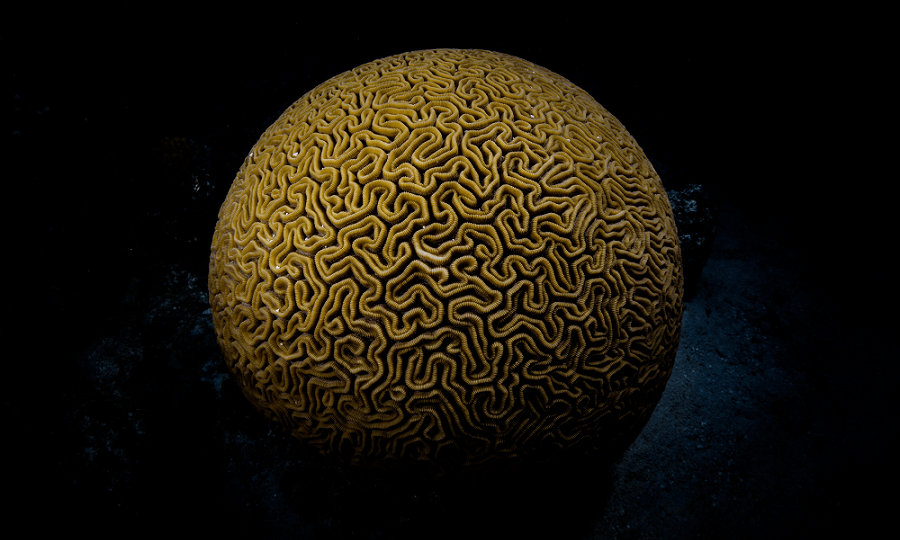
by Jasmine Virdi
Modern neuroscience has demonstrated that psychedelics such as LSD, psilocybin, the active ingredient in magic mushrooms, as well as ayahuasca operate to significantly reduce activity in the brain’s default mode network (DMN).
This reduction in DMN activity functions as a kind of ‘rebooting’ of the brain, and is thought to be linked to one of the most enduring therapeutic effects of psychedelic substances.
What is the Default Mode Network?
The default mode network refers to an interconnected group of brain regions that are associated with introspective functions, internally directed thought, such as self-reflection, and self-criticism.
Increased activity of the DMN is correlated with the experience of mind-wandering and our capacity to imagine mental states in others (i.e. theory of mind) as well as our ability to mentally “time travel”, projecting ourselves into the past or future.
The functioning of the DMN is considered essential to normal, everyday consciousness and is at its most active when a person is in a resting state and their attention is not externally directed on a worldly task or stimulus.
For example, if you put somebody in an MRI scanner and don’t give them anything to do, their mind will start wandering and you will see the regions that make up the DMN light up.
The functional connections that make up the DMN increase from birth to adulthood, with the DMN not being fully active until later in a child’s development, emerging around the age of five as the child develops a stable sense of narrative self or “ego”.
As we mature, we learn to respond to life’s stimuli in a patterned way, developing habitual pathways of communication between brain regions, particularly those of the DMN.
Over time, communication becomes confined to specific pathways, meaning that our brain becomes more ‘constrained’ as we develop.
It is these constrained paths of communication between brain regions that quite literally come to constitute our ‘default mode’ of operating in the world, coloring the way we perceive reality.
Evolutionarily speaking, it has been hypothesized that the DMN plays a major role in our survival, helping us form a continuous sense of self, differentiating ourselves from the world around us.
The DMN has been described by psychiatrist Matthew Brown as the part of the brain which serves to “remind you that you are you.”
Overactivity of the Default Mode Network & Mental Health Conditions
The DMN has been found to be particularly overactive in certain mental health conditions, such as depression, anxiety, and OCD.
Matthew Brown likens DMN overactivity to experiences of “hypercriticality”, “rigid thought patterns”, and “automatic negative thought loops” about oneself.
Imagine that you are at a party, telling a joke that gets met with an awkward silence.
Initially, people might think “Oh no, that wasn’t so funny,” but they tend to quickly move on to the next leg of the conversation, forgetting about it entirely.
However, you go home that evening, finding yourself completely unable to sleep because you are wrought with worry about the bad joke you told, what a fool you appeared to be, and how others might be judging you harshly for it.
This is a classic example of DMN overactivity and the negative thought patterns which tend to be visible in people who suffer from depression, anxiety, and OCD.
How Do Psychedelics Affect the Default Mode Network?
Psychiatric doctor and ayahuasca researcher Simon Ruffell likens the effects of psychedelics on the DMN to “defragmenting a computer.”
When you ingest a psychedelic, activity of the DMN is significantly decreased whilst connectivity in the rest of the brain increases.
“Brain imaging studies suggest that when psychedelics are absorbed they decrease activity in the default mode network. As a result the sense of self appears to temporarily shut down, and thus ruminations may decrease. The brain states observed show similarities to deep meditative states, in which increased activity occurs in pathways that do not normally communicate. This process has been compared to defragmenting a computer. Following this, it appears that the default mode network becomes more cohesive. We think this could be one of the reasons levels of anxiety and depression appear to reduce.”
- Dr. Simon Ruffell, Psychiatrist and Senior Research Associate at King’s College London
Due to psychedelics’ ability to disrupt the activity of the DMN, they have a particularly strong therapeutic potential when it comes to changing negative thought patterns.
For example, a study by Imperial College London assessed the impact of psilocybin-assisted therapy on twelve patients with severe depression.
Results demonstrated that psilocybin-assisted therapy was able to dramatically reduce their depression scores for a period of up to three months.
A follow-up study suggested that the therapeutic impact of psilocybin was linked to its ability to ‘reset’ the DMN, turning it off and reconsolidating it in a way that is a little less rigid than before.
In general, it has been shown that psychedelics produce increases in psychological flexibility, positing another explanation for why we see decreases in depression and anxiety following a psychedelic experience.
Based on what we know about the DMN, we could hypothesize that it plays an influential role in one’s ability to be psychologically flexible.
Matthew Brown gave an analogy for how psychedelics are able to reset the DMN, enabling an increased sense of psychological flexibility:
“If you do the same thing repeatedly, it is like you are walking down the same path all the time. Naturally, that path becomes very well worn and easy to walk down. However, you realize that maybe there is another path that might be more advantageous for you and you want to try walking down that path. Psychedelics ‘mow the lawn’ so that it doesn’t seem that the weeds are quite so high and you can walk down that new path a little bit more easily.”
Entropic Brain Theory & The Reducing Valve
Psychedelics tend to disrupt the activity of the DMN, temporarily disintegrating the highly organized system of networks that it is made up of, allowing for “less ordered neurodynamics”, and a greater degree of entropy within the brain.
That is to say that open, freer conversations begin to take place between brain regions that are normally kept separate.
According to the ‘entropic brain’ theory, the state of consciousness associated with psychedelics is comparable to that which exists in early childhood – we experience awe and wonder, looking at everything in the world around us as wholly novel.
These findings are in line with writer and philosopher Aldous Huxley’s early reflections on the psychedelic experience, in which he described psychedelic consciousness as “Mind at Large” in that it grants us access to a larger set of brain functions, allowing us to tap into an unbounded state of consciousness which extends beyond the individual and into the collective.
He theorized that in order “to make biological survival possible, Mind at Large has to be funneled through the reducing valve of the brain and nervous system.”
In this case, we can think of the “reducing valve” as a metaphor for the DMN which in some sense serves “to protect us from being overwhelmed and confused by this mass of largely useless and irrelevant knowledge, […] and leaving only that very small and special selection which is likely to be practically useful.”
The Default Mode Network & Ego Death
In 2016, a breakthrough study by Imperial College London used a combination of neuroimaging techniques to measure electrical activity and experiential reports from participants to investigate the link between brain activity and reported psychological responses to LSD in twenty volunteers.
Results demonstrated that LSD dampens the function of the DMN, and that this decrease in activity strongly correlated with the subjective experience of “ego dissolution” or “ego death”, indicating that the DMN performs a vital part in sustaining the “ego” or “self”.
Similarly, researchers at Johns Hopkins University published a pioneering study, demonstrating that psilocybin is able to produce mystical-type experiences in participants, such as the experience of ego death.
These experiences were considered to be deeply meaningful by participants and were seen to elicit sustained positive changes in attitude and behaviour.
Generally, it’s our ego – our sense of “I” – that tends to create and harbor negative thought patterns.
In conditions such as depression and anxiety, we become self-absorbed, narrowly focused on thoughts about ourselves, unable to take a step back and see the bigger picture.
The ego erects boundaries that can lead to us feeling isolated from the people around us, disconnected from nature and even ourselves.
In a state of ego dissolution, these boundaries are let down and a great “zooming out” takes place where you begin to see things on a macroscopic level. You are no longer an individual isolated from life as it takes place around you, but rather you are interconnected with everything through the web of life.
It is not a logical, but rather a felt experience of incredible love and reconnection.
When asked about the therapeutic implications of having an experience like ego dissolution, Matthew Brown explained that it can be tremendously healing as our consciousness is able to extend itself beyond the confines of our individual experience, and become one with nature’s larger whole.
“You realize that you are extremely insignificant, and perhaps that sounds defeating. However, it can be very freeing to realize that you are just one human who is existing for a very small blip of time in the grand scheme of the universe.”
— Dr. Matthew Brown, DO, MBA, ABPN, Child, Adolescent, Adult Psychiatry
It is important to note that although experiences of ego death can lead to deep personal insight, and thus have therapeutic benefits, they can also be terrifying.
Author of Changing our Minds, Don Lattin reminds us that ego death can be a “fearful and/or enlightening experience” that “depends in large part on whether mind travelers are ready for the journey, what baggage they bring along, and who’s accompanying them.”
Perhaps what is most interesting about the ego death experience, and the temporary rewiring of the brain enabled by psychedelics, is the long-lasting, enduring therapeutic effects that remain beyond the temporality of the drug.
The resetting of the DMN combined with the powerful experience of ego death induced by psychedelics are often described as amongst the most meaningful of experiences in a person’s life.
Such experiences help us to break free from negative thought patterns, become more psychologically flexible as well as dissolve the barriers between ourselves and the world around us, realizing our place in the interconnected web of life.
Skarekrow
~~DEVIL~~
- MBTI
- Ni-INFJ-A
- Enneagram
- Warlock
A favorite theory I've found.
I only wish it was more in-depth...(there is ONLY the "abstract edition" that exists) I don't feel you can just apply the word and idea(s) of "quantum physics/mechanics" to whatever you want and justify it as good reasoning for the existence or non-existence of something without getting much more detailed than this incredibly short proposal implies.
It seems like a good start, but is severely lacking in substance and makes an incredible amount of assumptions without even attempting to back them up.
To state that the belief of "ghosts" as a human spirit is "balderdash" is quite a giant baseless presumption which falls more into the personal beliefs and convictions of the author, and is not actually even slightly good solid science.
There is an immense amount assumed here, and I'm not convinced that the author really fully understands quantum theory very comprehensively himself.
Still a fun jumping off point of the basic idea to read and ponder.
Thoughts?
Enjoy!
:<3white:

Since the rise of mankind there have been stories of the spirits of the dead returning to haunt the living.
The very word, haunt, comes from the concept of an animal feeding place, and ghosts are seen as feeding upon the living.
Some societies revere the spirits of their ancestors, but even these myths include angry ghosts who prey upon the hapless mortals.
But what are ghosts?
The rise of science tells us that the idea of ghosts as spirits of the dead is absurd.
They exist in the supernatural, in a realm where science cannot tread, and as such they are dismissed as little more than the imagination of frightened, backward thinking people.
However, with the advent of quantum mechanics, new explanations shed light on why the myth of ghosts remains prevalent in cultures around the world.
What Are Ghosts?
Mythology would tell us that ghosts are the lingering spirits of the dead.
Balderdash!
Ghosts are not at all the spirits of the dead.
They are not, in fact, "spirits" at all.
A ghost is, put simply, an impression upon the subatomic weave of the universe, created via strong emotion of a sentient observer.
This means, in other words, that ghosts are not the disembodied personalities of the dead, and, in fact, they can be "spirits" of the living!
To understand this phenomena, one must first grasp one of the most fundamental principles of quantum mechanics: observation changes the subject being observed.
The simple act of observing or measuring a particle forces it into an energy state.
Unobserved, a particle may take any energy state available to it, but when a sentient observer is introduced, the particle becomes locked.
Ghosts are created when the observer's emotions create a semi-permanent "indentation" into the quantum tapestry of the universe.
Like the scent of burned toast that remains long after the offending bread is discarded, ghosts are impressions of emotions that remain long after the cause has been resolved.
Ghosts, therefore, are formed not from the dead, but from the living and their interactions with the world around them.
The recording of events within the subatomic weave gives rise to an afterimage, and depending on the intensity of the emotion and the permeability of the quantum state, different "types" of ghosts can be created.
Negative emotions are many times more likely to cause these effects.
The reason for this is currently unknown, though it may have to do with the quantum spin of the universe; in an anti-matter universe, positive emotions might create ghosts more effectively.
Regardless of the reason, negative emotions, particularly hate, guilt and grief, are the most common causes for ghost formation.
This also explains why ghosts have traditionally been thought of as the spirits of the dead; death of a loved one can cause profound negative emotions from multiple sources, all centered around the memories of the deceased, which can then amalgamate into a ghost that appears to be the deceased.
The formation of ghosts, however, is somewhat rare.
It requires more than an excess of negative emotions.
The quantum state around the individual or individuals who form the ghost must be favorable for the formation.
Certain areas are more susceptible to this than others, especially those where negative emotions are most common, such as cemeteries or hospitals.
Other areas may be conducive to ghost formation due to other environmental factors.
Measuring and Classifying Ghosts
The intensity of the impression upon the quantum weave determines the "type" of ghost spawned.
Ghosts can be categorized by measurable, observable characteristics:
- Size and shape
- Range of motion/area
- Duration/frequency of appearance
Based on these three data points, ghosts fall into one of the following basic categories:
- Type A – small balls of light, sometimes only captured via camera, repeating in nature, commonly referred to as orbs.
- Type F – apparitions, may take partially human form, may have auditory component, repeating in nature, non-independent.
- Type N – specters, human form, full sensory spectrum, semi-independent in nature.
- Type R – poltergeist, metamorphic form, sensory and extrasensory spectrum, capable of limited independent action.
- Type X – entity, fully independent with wide range of quantum-based abilities, often self-aware, sometimes called "demons", capable of possessing
human host via quantum alignment.
Type X ghosts are exceedingly rare, formed from large quantum disturbances over many years.
The classic western "ghost" would be either Type N or Type R.
Intervening types, for example Type B-Type E, are variations on the primary of each subset.
A Type B orb, for example, has measurable color shifting.
Because ghosts are quantum phenomenon, they can be disrupted via other quantum phenomenon.
Powerful magnets, for example, can cause ghosts to be attracted or repelled, and radioactive materials can cause mutations in a ghost's form.
Since ghosts are not made of solid matter, they can pass through objects with no difficulty, but the movement of matter is very difficult for any ghost below the R subtype.
Interactions With Ghosts
Ghosts with fully independent awareness often believe they are the mythological spirits of the dead and act accordingly.
Only on rare occasions do they accept that they are not the remnants of the dead, though this may explain various other mythological creatures such as djinn or faeries.
Destructive ghosts are generally bound to the event that created them, and may be discorporated if the event is resolved.
This explains why ghosts might vanish after a murder is solved, for example.
Additionally, certain items may cause ghosts to be forced away, not due to any "magical" properties, but simple because the quantum state of the item in anathema to the ghost's quantum signature.
In conclusion, ghosts are neither supernatural nor imaginary.
They can be quantified and measured.
An intriguing experiment would follow; placing a Type R or higher ghost within a particle accelerator.
However, such an experiment would likely destroy the ghost, though it might reveal new subatomic particles.
In any event, ghost study may be academically pursued without need for the ridiculous trappings of the paranormal.
As always, science shows us that the world around us is more complex that we imagine, but always within our grasp.
.
I only wish it was more in-depth...(there is ONLY the "abstract edition" that exists) I don't feel you can just apply the word and idea(s) of "quantum physics/mechanics" to whatever you want and justify it as good reasoning for the existence or non-existence of something without getting much more detailed than this incredibly short proposal implies.
It seems like a good start, but is severely lacking in substance and makes an incredible amount of assumptions without even attempting to back them up.
To state that the belief of "ghosts" as a human spirit is "balderdash" is quite a giant baseless presumption which falls more into the personal beliefs and convictions of the author, and is not actually even slightly good solid science.
There is an immense amount assumed here, and I'm not convinced that the author really fully understands quantum theory very comprehensively himself.
Still a fun jumping off point of the basic idea to read and ponder.
Thoughts?
Enjoy!
:<3white:
The Quantum Theory of Ghosts (Abstract Edition)
Originally developed by Professor Max Bruin, PhD
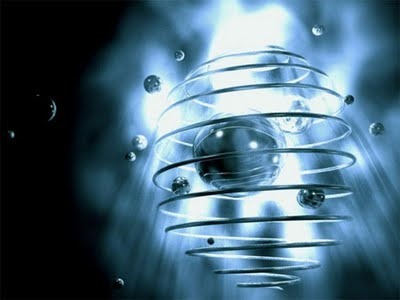
Since the rise of mankind there have been stories of the spirits of the dead returning to haunt the living.
The very word, haunt, comes from the concept of an animal feeding place, and ghosts are seen as feeding upon the living.
Some societies revere the spirits of their ancestors, but even these myths include angry ghosts who prey upon the hapless mortals.
But what are ghosts?
The rise of science tells us that the idea of ghosts as spirits of the dead is absurd.
They exist in the supernatural, in a realm where science cannot tread, and as such they are dismissed as little more than the imagination of frightened, backward thinking people.
However, with the advent of quantum mechanics, new explanations shed light on why the myth of ghosts remains prevalent in cultures around the world.
What Are Ghosts?
Mythology would tell us that ghosts are the lingering spirits of the dead.
Balderdash!
Ghosts are not at all the spirits of the dead.
They are not, in fact, "spirits" at all.
A ghost is, put simply, an impression upon the subatomic weave of the universe, created via strong emotion of a sentient observer.
This means, in other words, that ghosts are not the disembodied personalities of the dead, and, in fact, they can be "spirits" of the living!
To understand this phenomena, one must first grasp one of the most fundamental principles of quantum mechanics: observation changes the subject being observed.
The simple act of observing or measuring a particle forces it into an energy state.
Unobserved, a particle may take any energy state available to it, but when a sentient observer is introduced, the particle becomes locked.
Ghosts are created when the observer's emotions create a semi-permanent "indentation" into the quantum tapestry of the universe.
Like the scent of burned toast that remains long after the offending bread is discarded, ghosts are impressions of emotions that remain long after the cause has been resolved.
Ghosts, therefore, are formed not from the dead, but from the living and their interactions with the world around them.
The recording of events within the subatomic weave gives rise to an afterimage, and depending on the intensity of the emotion and the permeability of the quantum state, different "types" of ghosts can be created.
Negative emotions are many times more likely to cause these effects.
The reason for this is currently unknown, though it may have to do with the quantum spin of the universe; in an anti-matter universe, positive emotions might create ghosts more effectively.
Regardless of the reason, negative emotions, particularly hate, guilt and grief, are the most common causes for ghost formation.
This also explains why ghosts have traditionally been thought of as the spirits of the dead; death of a loved one can cause profound negative emotions from multiple sources, all centered around the memories of the deceased, which can then amalgamate into a ghost that appears to be the deceased.
The formation of ghosts, however, is somewhat rare.
It requires more than an excess of negative emotions.
The quantum state around the individual or individuals who form the ghost must be favorable for the formation.
Certain areas are more susceptible to this than others, especially those where negative emotions are most common, such as cemeteries or hospitals.
Other areas may be conducive to ghost formation due to other environmental factors.
Measuring and Classifying Ghosts
The intensity of the impression upon the quantum weave determines the "type" of ghost spawned.
Ghosts can be categorized by measurable, observable characteristics:
- Size and shape
- Range of motion/area
- Duration/frequency of appearance
Based on these three data points, ghosts fall into one of the following basic categories:
- Type A – small balls of light, sometimes only captured via camera, repeating in nature, commonly referred to as orbs.
- Type F – apparitions, may take partially human form, may have auditory component, repeating in nature, non-independent.
- Type N – specters, human form, full sensory spectrum, semi-independent in nature.
- Type R – poltergeist, metamorphic form, sensory and extrasensory spectrum, capable of limited independent action.
- Type X – entity, fully independent with wide range of quantum-based abilities, often self-aware, sometimes called "demons", capable of possessing
human host via quantum alignment.
Type X ghosts are exceedingly rare, formed from large quantum disturbances over many years.
The classic western "ghost" would be either Type N or Type R.
Intervening types, for example Type B-Type E, are variations on the primary of each subset.
A Type B orb, for example, has measurable color shifting.
Because ghosts are quantum phenomenon, they can be disrupted via other quantum phenomenon.
Powerful magnets, for example, can cause ghosts to be attracted or repelled, and radioactive materials can cause mutations in a ghost's form.
Since ghosts are not made of solid matter, they can pass through objects with no difficulty, but the movement of matter is very difficult for any ghost below the R subtype.
Interactions With Ghosts
Ghosts with fully independent awareness often believe they are the mythological spirits of the dead and act accordingly.
Only on rare occasions do they accept that they are not the remnants of the dead, though this may explain various other mythological creatures such as djinn or faeries.
Destructive ghosts are generally bound to the event that created them, and may be discorporated if the event is resolved.
This explains why ghosts might vanish after a murder is solved, for example.
Additionally, certain items may cause ghosts to be forced away, not due to any "magical" properties, but simple because the quantum state of the item in anathema to the ghost's quantum signature.
In conclusion, ghosts are neither supernatural nor imaginary.
They can be quantified and measured.
An intriguing experiment would follow; placing a Type R or higher ghost within a particle accelerator.
However, such an experiment would likely destroy the ghost, though it might reveal new subatomic particles.
In any event, ghost study may be academically pursued without need for the ridiculous trappings of the paranormal.
As always, science shows us that the world around us is more complex that we imagine, but always within our grasp.
.
John K
Donor
- MBTI
- INFJ
- Enneagram
- 5W4 549
Interesting article - it feels like the author has been caught in a trap of binary thinking. Our choices can be completely free or completely lacking, but most of the time they are on a spectrum between these extremes. This is similar to the point I made a while back about our life choices being more like controlling a river. He also seems to tangle the psychological problem of being an unwitting cause of harm with the moral problem of having done harm through at least some element of free choice. All other things being equal, the lorry driver is as much a victim as the child and it’s family, and is suffering the consequences of shit happening in the form of regret. If he’d been up till 3am that morning playing computer games though then maybe his driving reactions were not what they should have been, and he would possibly have a partial moral accountability as well arising from a choice he made.Feeling lucky?
Thoughts??
Enjoy!
:3white:
Skarekrow
~~DEVIL~~
- MBTI
- Ni-INFJ-A
- Enneagram
- Warlock
Interesting article - it feels like the author has been caught in a trap of binary thinking. Our choices can be completely free or completely lacking, but most of the time they are on a spectrum between these extremes. This is similar to the point I made a while back about our life choices being more like controlling a river. He also seems to tangle the psychological problem of being an unwitting cause of harm with the moral problem of having done harm through at least some element of free choice. All other things being equal, the lorry driver is as much a victim as the child and it’s family, and is suffering the consequences of shit happening in the form of regret. If he’d been up till 3am that morning playing computer games though then maybe his driving reactions were not what they should have been, and he would possibly have a partial moral accountability as well arising from a choice he made.
Yes, I thought something similar...going back to the locus of control.
The author seems to be very external in his/her perception of things.
Of course there are always things that are out of our control, but there are many more things that are within our control imho.
It actually took some time for me to reorientate myself and to cultivate more of an internal locus.
This also ties in to the idea of mind over matter as well and the idea of the double-slit experiment - which has some damn solid proof that we do really have much more control over the reality we seem than we think or realize we do.
Not to say we control all, because that just isn't true in a conscious sense of this reality...or even subconsciously...but perhaps in some kind of further dimensional aspect of ourselves existing in the greater reality that we cannot yet fully grasp or understand completely.
I hope you are doing alright John?
Lots and lots of love to you and the family!
:<3white::<3white::<3white:
John K
Donor
- MBTI
- INFJ
- Enneagram
- 5W4 549
I never cease to be amazed at the contortions people will go to in defence of a hypothetical worldviewA favorite theory I've found.
I only wish it was more in-depth...(there is ONLY the "abstract edition" that exists) I don't feel you can just apply the word and idea(s) of "quantum physics/mechanics" to whatever you want and justify it as good reasoning for the existence or non-existence of something without getting much more detailed than this incredibly short proposal implies.
It seems like a good start, but is severely lacking in substance and makes an incredible amount of assumptions without even attempting to back them up.
To state that the belief of "ghosts" as a human spirit is "balderdash" is quite a giant baseless presumption which falls more into the personal beliefs and convictions of the author, and is not actually even slightly good solid science.
There is an immense amount assumed here, and I'm not convinced that the author really fully understands quantum theory very comprehensively himself.
Still a fun jumping off point of the basic idea to read and ponder.
Thoughts?
Enjoy!
:<3white:
The Quantum Theory of Ghosts (Abstract Edition)
Originally developed by Professor Max Bruin, PhD

Since the rise of mankind there have been stories of the spirits of the dead returning to haunt the living.
The very word, haunt, comes from the concept of an animal feeding place, and ghosts are seen as feeding upon the living.
Some societies revere the spirits of their ancestors, but even these myths include angry ghosts who prey upon the hapless mortals.
But what are ghosts?
The rise of science tells us that the idea of ghosts as spirits of the dead is absurd.
They exist in the supernatural, in a realm where science cannot tread, and as such they are dismissed as little more than the imagination of frightened, backward thinking people.
However, with the advent of quantum mechanics, new explanations shed light on why the myth of ghosts remains prevalent in cultures around the world.
What Are Ghosts?
Mythology would tell us that ghosts are the lingering spirits of the dead.
Balderdash!
Ghosts are not at all the spirits of the dead.
They are not, in fact, "spirits" at all.
A ghost is, put simply, an impression upon the subatomic weave of the universe, created via strong emotion of a sentient observer.
This means, in other words, that ghosts are not the disembodied personalities of the dead, and, in fact, they can be "spirits" of the living!
To understand this phenomena, one must first grasp one of the most fundamental principles of quantum mechanics: observation changes the subject being observed.
The simple act of observing or measuring a particle forces it into an energy state.
Unobserved, a particle may take any energy state available to it, but when a sentient observer is introduced, the particle becomes locked.
Ghosts are created when the observer's emotions create a semi-permanent "indentation" into the quantum tapestry of the universe.
Like the scent of burned toast that remains long after the offending bread is discarded, ghosts are impressions of emotions that remain long after the cause has been resolved.
Ghosts, therefore, are formed not from the dead, but from the living and their interactions with the world around them.
The recording of events within the subatomic weave gives rise to an afterimage, and depending on the intensity of the emotion and the permeability of the quantum state, different "types" of ghosts can be created.
Negative emotions are many times more likely to cause these effects.
The reason for this is currently unknown, though it may have to do with the quantum spin of the universe; in an anti-matter universe, positive emotions might create ghosts more effectively.
Regardless of the reason, negative emotions, particularly hate, guilt and grief, are the most common causes for ghost formation.
This also explains why ghosts have traditionally been thought of as the spirits of the dead; death of a loved one can cause profound negative emotions from multiple sources, all centered around the memories of the deceased, which can then amalgamate into a ghost that appears to be the deceased.
The formation of ghosts, however, is somewhat rare.
It requires more than an excess of negative emotions.
The quantum state around the individual or individuals who form the ghost must be favorable for the formation.
Certain areas are more susceptible to this than others, especially those where negative emotions are most common, such as cemeteries or hospitals.
Other areas may be conducive to ghost formation due to other environmental factors.
Measuring and Classifying Ghosts
The intensity of the impression upon the quantum weave determines the "type" of ghost spawned.
Ghosts can be categorized by measurable, observable characteristics:
- Size and shape
- Range of motion/area
- Duration/frequency of appearance
Based on these three data points, ghosts fall into one of the following basic categories:
- Type A – small balls of light, sometimes only captured via camera, repeating in nature, commonly referred to as orbs.
- Type F – apparitions, may take partially human form, may have auditory component, repeating in nature, non-independent.
- Type N – specters, human form, full sensory spectrum, semi-independent in nature.
- Type R – poltergeist, metamorphic form, sensory and extrasensory spectrum, capable of limited independent action.
- Type X – entity, fully independent with wide range of quantum-based abilities, often self-aware, sometimes called "demons", capable of possessing
human host via quantum alignment.
Type X ghosts are exceedingly rare, formed from large quantum disturbances over many years.
The classic western "ghost" would be either Type N or Type R.
Intervening types, for example Type B-Type E, are variations on the primary of each subset.
A Type B orb, for example, has measurable color shifting.
Because ghosts are quantum phenomenon, they can be disrupted via other quantum phenomenon.
Powerful magnets, for example, can cause ghosts to be attracted or repelled, and radioactive materials can cause mutations in a ghost's form.
Since ghosts are not made of solid matter, they can pass through objects with no difficulty, but the movement of matter is very difficult for any ghost below the R subtype.
Interactions With Ghosts
Ghosts with fully independent awareness often believe they are the mythological spirits of the dead and act accordingly.
Only on rare occasions do they accept that they are not the remnants of the dead, though this may explain various other mythological creatures such as djinn or faeries.
Destructive ghosts are generally bound to the event that created them, and may be discorporated if the event is resolved.
This explains why ghosts might vanish after a murder is solved, for example.
Additionally, certain items may cause ghosts to be forced away, not due to any "magical" properties, but simple because the quantum state of the item in anathema to the ghost's quantum signature.
In conclusion, ghosts are neither supernatural nor imaginary.
They can be quantified and measured.
An intriguing experiment would follow; placing a Type R or higher ghost within a particle accelerator.
However, such an experiment would likely destroy the ghost, though it might reveal new subatomic particles.
In any event, ghost study may be academically pursued without need for the ridiculous trappings of the paranormal.
As always, science shows us that the world around us is more complex that we imagine, but always within our grasp.
.
Another thought - once you accept as plausible that quantum mechanics opens the door to any kind of ghost activity, why not accept that it could also allow survival after death. Personally I doubt that quantum mechanics could have anything to do with it without a lot more evidence. It’s fun to play with the ideas though.
Skarekrow
~~DEVIL~~
- MBTI
- Ni-INFJ-A
- Enneagram
- Warlock
Exactly!!Another thought - once you accept as plausible that quantum mechanics opens the door to any kind of ghost activity, why not accept that it could also allow survival after death.
If you can believe some of the more far out aspects of quantum mechanics then there seems to be plenty of room for the existence of life after death, lol.
Thanks for your thoughts!
It's a fun article though...I really do wish it were more detailed because I throughly enjoy reading about such ideas.
But, it would all be theory besides - just as life after death is until we prove otherwise.
Cheers my friend!


